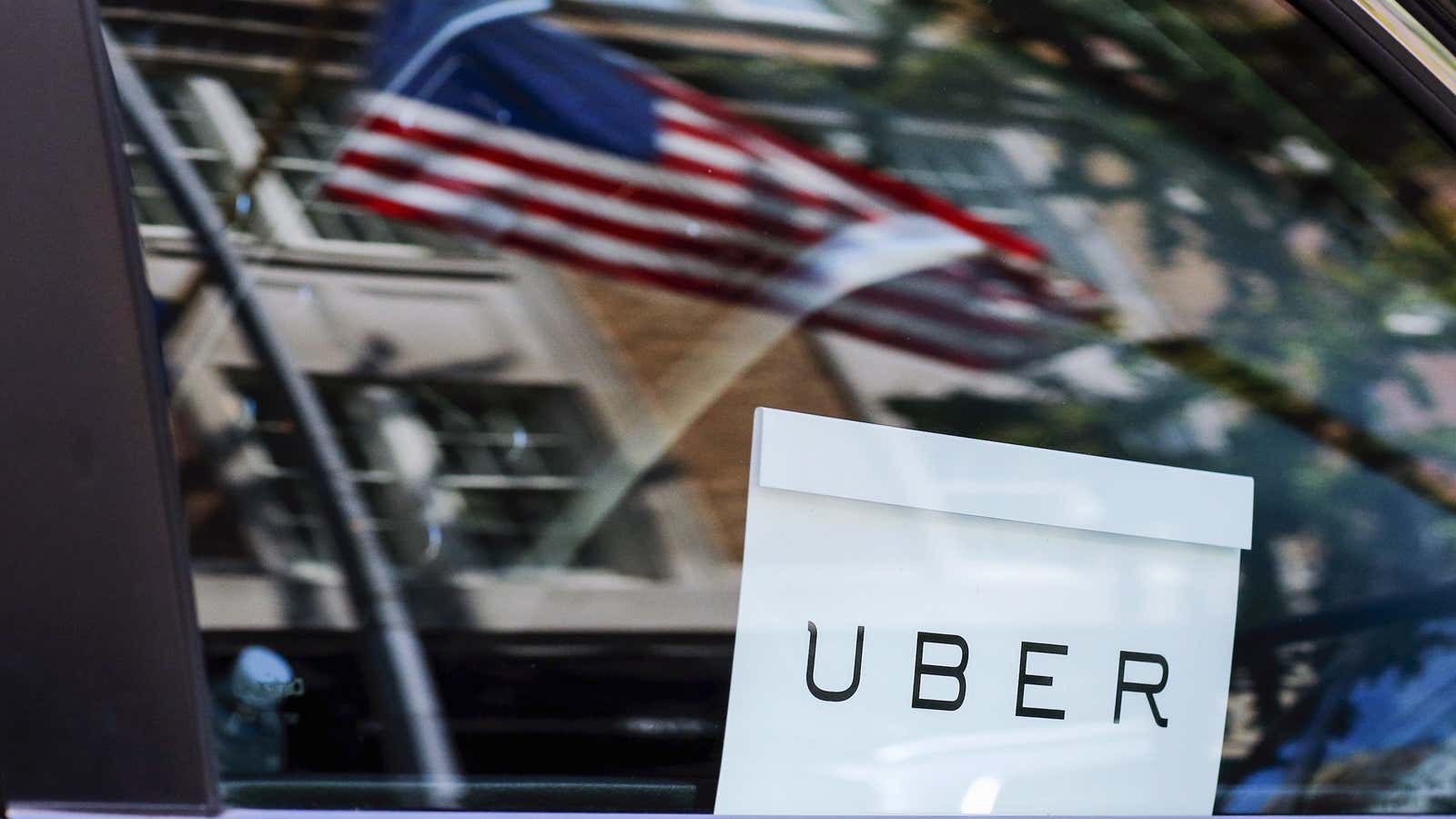Uber has spent much of this year lobbying for legislation that accommodates their peer-to-peer ride operations. Those efforts have largely paid off: To date, more than 25 states and dozens of cities have passed laws that let Uber and competitors such as Lyft operate with relatively few regulatory hurdles.
There’s also evidence now that Uber is building support for its employment practices. Reuters reports that Uber drivers already are recognized as independent contractors in three states, based on a review of current and pending ride-hailing legislation.
Laws passed in North Carolina, Arkansas, and Indiana to regulate services like Uber include provisions that require drivers for these companies to be classified as independent contractors, according to Reuters. Pending legislation in two other states—Ohio and Florida—contains similar clauses, the report notes.
Uber’s business is built on the contractor model, in which drivers don’t get benefits like traditional employees and are responsible for paying any on-the-job costs, such as gas and vehicle maintenance. By one estimate, the contractor model saves companies up to 30% on labor costs.
Winning the blessing of three state governments for an employment model that has proven controversial elsewhere is not an insignificant achievement. (Uber tells Quartz it supports the bills and similar ones across the country.) In California, Uber is fighting a class action lawsuit over whether its drivers are contractors—as the company insists—or employees. Under a Dec. 9 ruling by a federal judge, the suit could include many of the 160,000 people who have driven for Uber in the state since 2009; it heads to trial in June.
